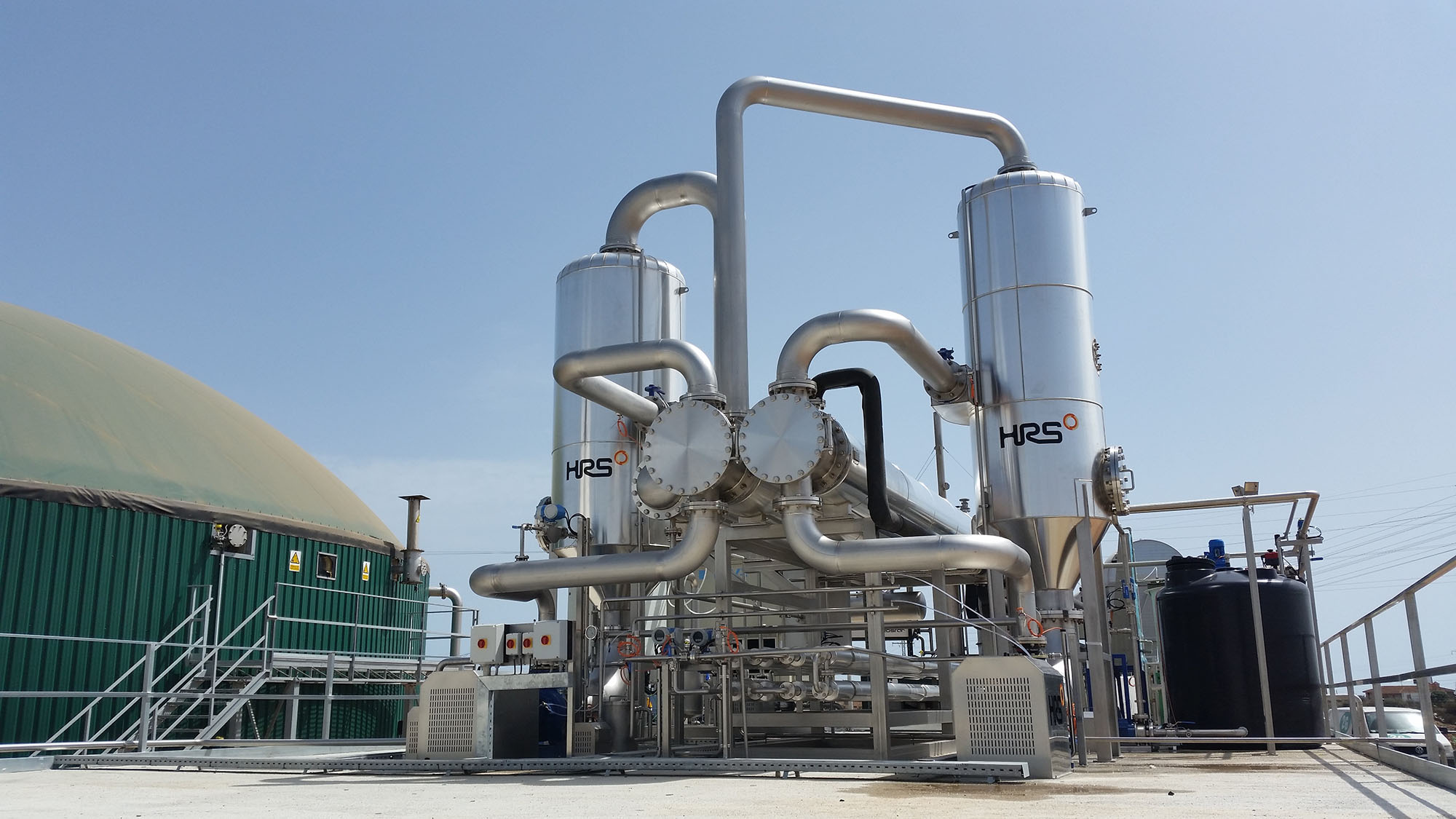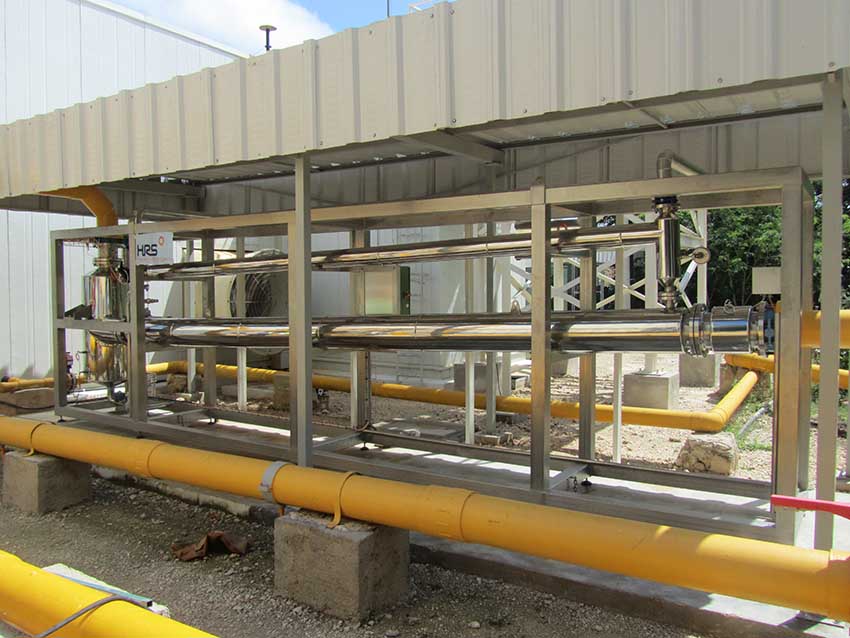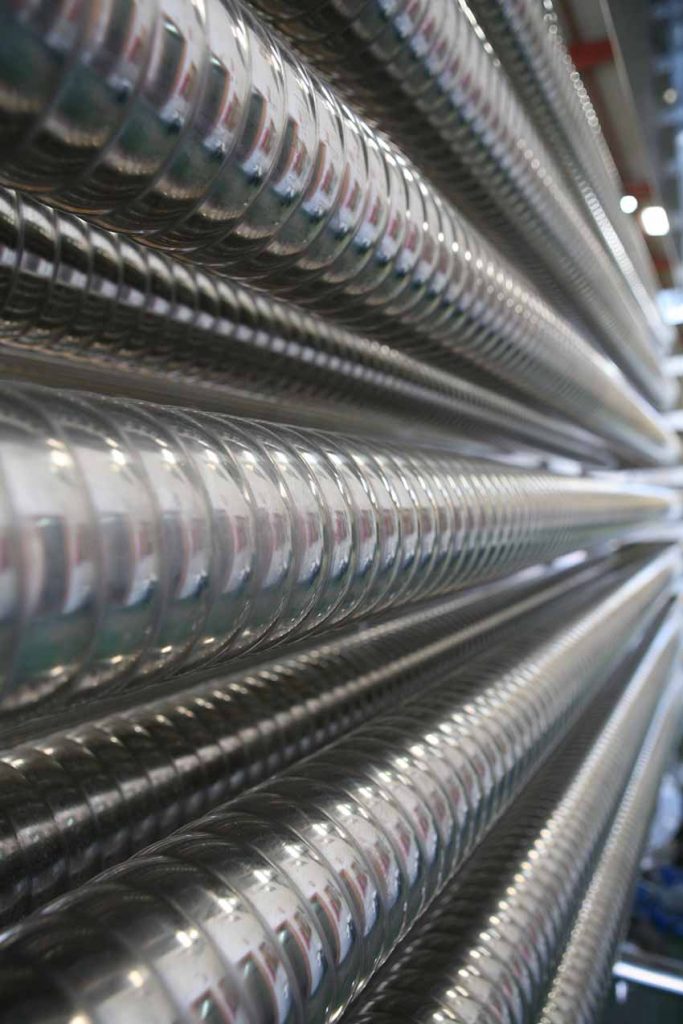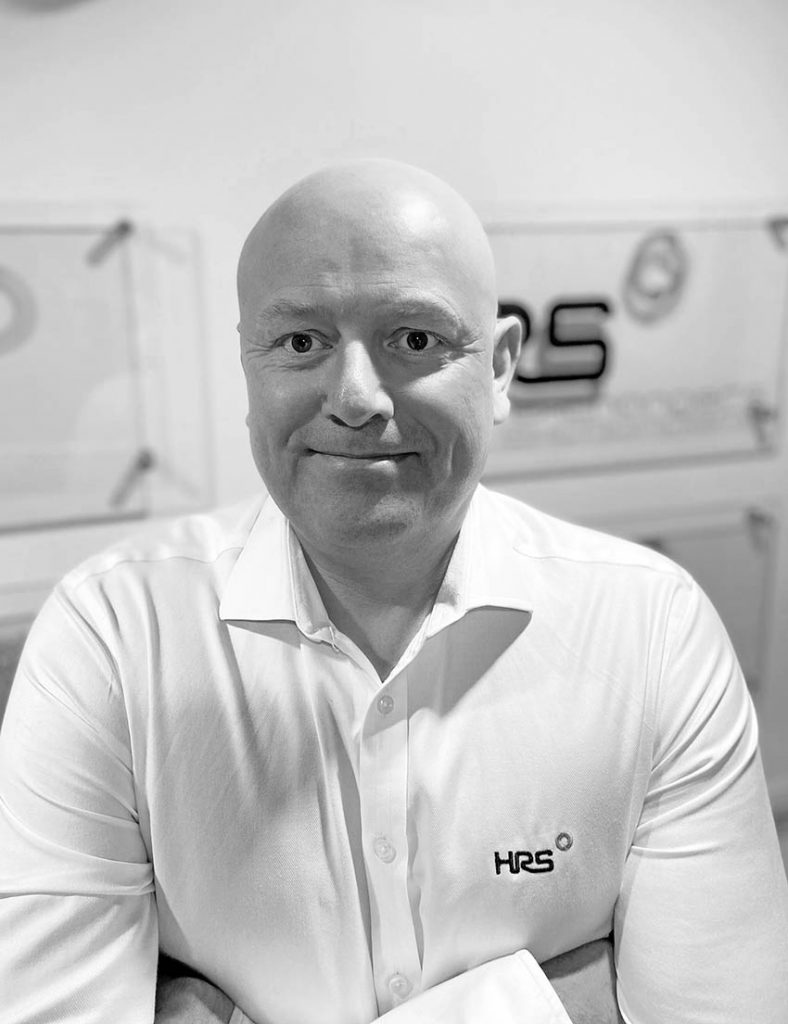HRS Heat Exchangers is an international company specialising in the design, manufacture and installation of heat exchangers and heat transfer systems. In particular, they are known for their corrugated tube and scraped surface heat exchangers, and the ability to supply turnkey systems with these technologies at their core.
As well as having manufacturing facilities in three countries (the UK, Spain and India) and dedicated sales offices in eight countries around the world, HRS Heat Exchangers has long-standing partnerships with agents and suppliers in many other countries around the world, including in Europe, Russia and further afield.
This year HRS celebrates its 40th anniversary and has recently been acquired by Canada-based Exchanger Industries Limited, a leading manufacturer of heat exchangers for use in industrial and energy applications. Exchanger Industries has been operating in the sector for 60 years, giving the two companies a century of combined experience in heat transfer technology. As companies they currently operate in different sectors and while they both operate internationally, there is little geographical overlap, making them a good fit together. Going forward HRS looks forward to sharing best practice (both companies have access to a number of their own unique technologies) and expanding their offering to existing and new clients.
Interview with Matt Hale, International Sales & Marketing Director, HRS Heat Exchangers.
Easy Engineering: What are the main areas of activity of the company?
Matt Hale: HRS Heat Exchangers provides solutions for clients in a wide range of industries. Some of these include industrial and chemical processing; food and drink manufacture; pharmaceuticals; pet food manufacturing; environmental, waste and water services; and energy and renewables, in particular anaerobic digestion and biogas.
E.E: What’s the news about new products?
M.H: As a company, HRS are always looking to develop new products and solutions, as well as improving existing products. These developments sometimes come about as a result of specific requests by our clients, and sometimes when we identify a particular requirement or market niche. Some of our new product developments over the last few years have included:
- An improvement of our stand-alone Cleaning-in-Place (CIP) and sterilisation-in-place (SIP) systems for cleaning and disinfection in all hygienic industries, including food and pharmacy industry systems.
- A new HRS I Series to de-pack and crush (the IC Series) and melt (IM Series) frozen fruit juice (also known as re-melting) ready for storage or further processing in the not-from-concentrate (NFC) fruit juice market.
- An ohmic pasteurisation system for fresh fruit juice, which uses electricity to heat the product rapidly and uniformly. This is highly effective at inactivating bacteria, yeast and moulds while maintaining the flavours and quality of fruit juice.
- The HRS DSI Series, which injects food grade steam into liquid products, providing an instant increase in the thermal process, and which is particularly useful in the manufacture of plant-based drinks such as oat ‘milk.’
- A new high-pressure version of our AS Series of annular space heat exchangers. This includes thicker tube walls around the product, while the service fluid (usually water or steam) remains at standard pressures of around 10 bar. The design means that process pressures of up to 150 bar can be accommodated on the product side of the heat exchanger, making it ideal for applications such as pasteurising and sterilising tomato and strawberry purees.
- A new Biogas Dehumidification System (BDS) which removes water from biogas, protecting CHP engines from corrosion and cavitation. It also comes with a heat recovery section as standard, increasing the overall energy efficiency of AD plants.
- A new C Series of industrial multitube heat exchangers with a smaller tube diameter to improve heat transfer in certain situations and create a more compact unit. The HRS C Series is suitable for applications with low to medium viscosities, as well as heating CIP fluids and general industrial applications.
E.E: What are the ranges of products?
M.H: Our product ranges fall broadly into three families: heat exchangers, turnkey systems, and other products. Within each of these categories there are a number of different product types and families.
Heat Exchangers
We offer three main types of heat exchanger.
- Corrugated heat exchangers use HRS’s corrugated tube technology which increases both heat transfer and efficiency compared to standard smooth tube designs. The design minimises fouling, making it possible to supply more compact and economical units. Our corrugated heat exchanger ranges included:
- Annular Space heat exchangers. The HRS AS Series consist of three or four concentric tubes. The product flows through the annular space and the service fluid flows through the inner and outer tubes to ensure even heating and cooling. The removable inner tube allows for easy inspection of the annular space.
- Double Tube heat exchangers. These are used for the efficient heat transfer between two fluids and includes the HRS DTA Series of hygienic double tube heat exchangers, the HRS DTI Series of industrial heat exchangers, and the HRS DTR Series which features a removable tube.
Multitube heat exchangers use more than one tube to carry the product, and we have a wide range of models for different uses and industries. The HRS C Series and K Series are for industrial use, while the HRS G Series is for gas cooling. For hygienic use (in the food and pharmaceutical industry) we offer the HRS MI Series and the MR Series which has removable tubes. We also offer a multi-pass range (the HRS MP Series), and a number of double tubeplate designs for different industries (The HRS SH, SI and SP Series).
Scraped surface heat exchangers are designed for difficult heat transfer applications where high viscosity materials are likely to create fouling issues. The scrapers within the tubes mix the product while also cleaning the heat exchanger surface to maintain heat transfer and reduce downtime. HRS produces two types of patented scraped surface heat exchanger:
The HRS Unicus Series is a reciprocating scraped surface heat exchanger for a wide range of applications where very viscous fluids or high fouling levels are experienced, particularly where gentle product handling is required.
The HRS R Series of rotating scraped surface heat exchangers features a unique helix and high-speed operation to provide high levels of shearing and mixing, greatly increasing heat transfer rates.
Plate heat exchangers are suitable for low viscosity fluids or those which are free of particles.
Turnkey Systems
HRS Heat Exchangers produce a number of stand-alone systems for use in the environmental or food industries, as well as a number of self-contained trial units.
- HRS Biogas Dehumidification System (BDS)
- HRS Digestate Concentration System (DCS) for the concentration of environmental waste streams like slurries and digestate from anaerobic digestion
- Digestate Pasteurisation System (DPS) for removing pathogens from digestate
- Concentration and Evaporation Systems, for environmental or food and beverage use, including systems for Zero Liquid Discharge (ZLD)
- Air Removal (deaeration) systems
- A range of Asepticblock and Thermblock pasteurisers/sterilisers
- Cleaning systems for Cleaning-in-Place (CIP) and Sterilising-in-Place (SIP)
- Direct Steam Injection (DSI) steriliser
- HRS I Series ice crusher and melter
- Skid-mounted and trial systems for evaporation, aseptic filling and more.
Other Products
The HRS AF Series of aseptic fillers are a range of single and dual head aseptic fillers for use with ‘bag-in-box’ and ‘bag-in-drum’ type sterile packaging solutions. The aseptic process ensures that both food and packaging materials are free of harmful bacteria when the product is packaged.
The HRS BP Series of piston pumps are hydraulically or pneumatically operated positive displacement pumps, suitable for large particles such as materials containing whole fruits. A hygienic design incorporates a separator fitted between the piston and the hydraulic chamber to ensure no contact between the product and the hydraulic oil. Once the pump is in operation, no part which comes into contact with oil comes into contact with the product.
E.E: At what stage is the market where you are currently active?
M.H: While HRS often works with new installations and help our clients set up the production of new products and lines, most of industries we are involved in, such as food, industry, waste and energy are fairly mature. Many of our customers approach us when looking to upgrade or expand production, as well as those looking to maximise the efficiency of new projects, such as the developers of AD plants.
Some sectors, such as waste management, where we have been involved for many years, we are seeing new technologies being adopted, for example to cope with increasing environmental pressures. One example is the increased interest in zero liquid discharge (ZLD) technology for waste and water treatment, and we have supplied a number of evaporation systems for ZLD systems.
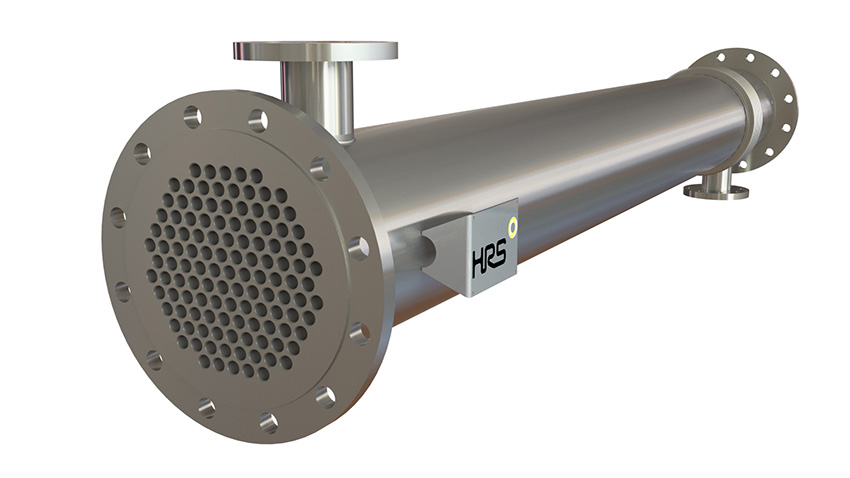
E.E: What can you tell us about market trends?
M.H: As mentioned above, most of the industries we supply are fairly mature and continued to invest during the Coronavirus restrictions. As restrictions ease the global economy begins to slowly recover, we anticipate that some projects which were put on hold may move forward and that investment will slowly increase.
We are seeing more demand for systems which help companies reduce their environmental footprint, whether that’s utilising energy and heat which would otherwise have been wasted through heat recapture and heat regeneration technology, improved waste treatment, or finding value in by-products and waste streams.
E.E: What estimations do you have for 2022?
M.H: Some of the market trends we anticipate have been outlined above. In addition, following our acquisition by Exchanger Industries, we will be working to maximise the benefits for both companies and we would expect to continue to develop our pipeline of new and improved products. Watch this space!

